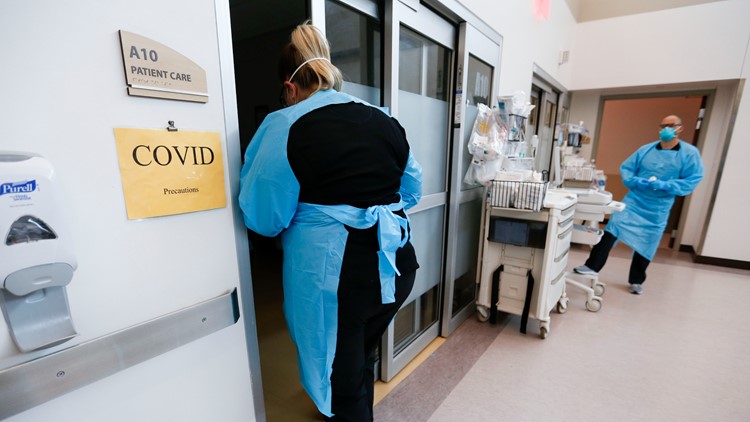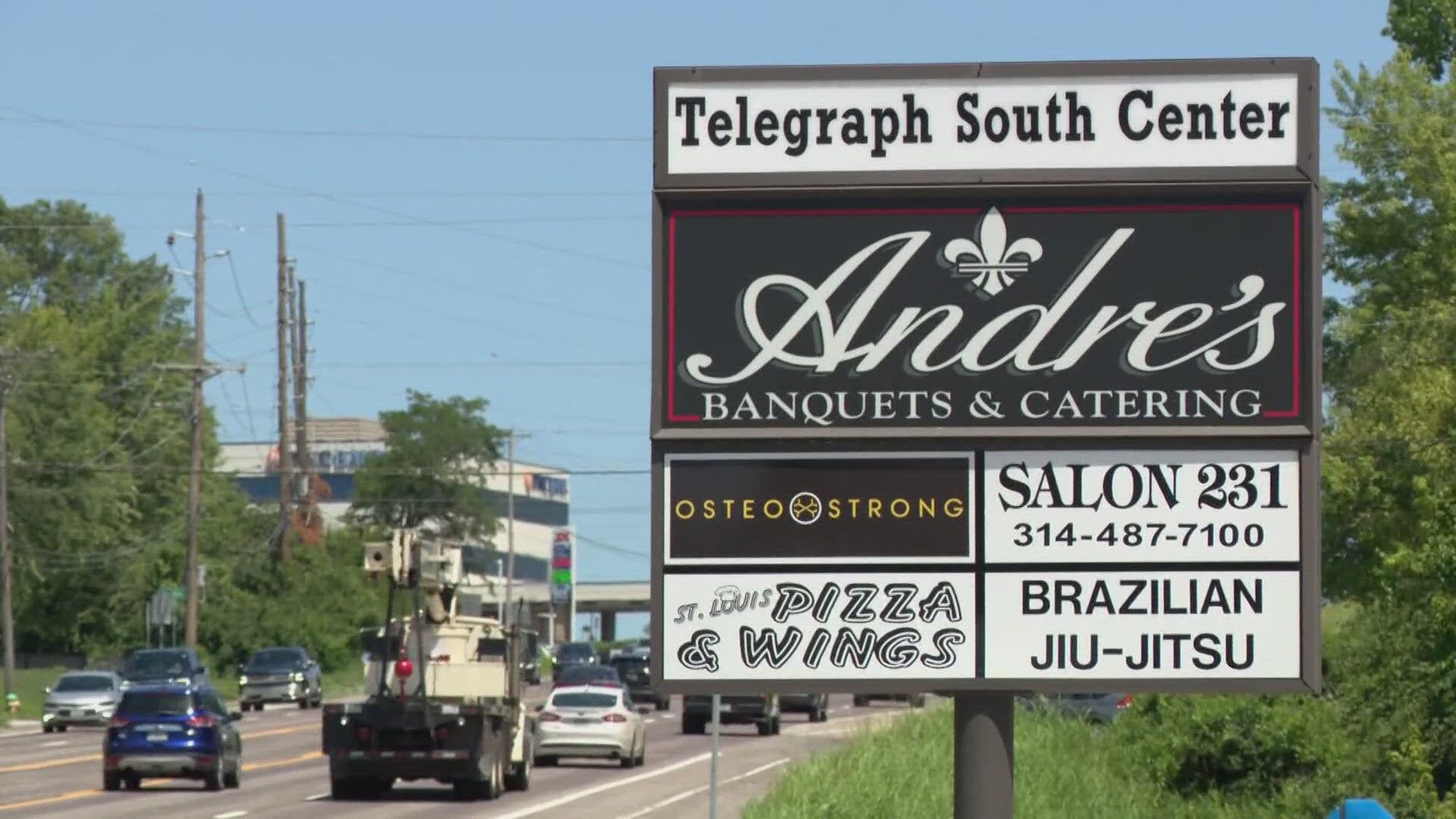KANSAS CITY, Mo. — Intensive care units are nearly full across the Kansas City area, creating challenges for hospitals battling to keep up with the high number of COVID-19 patients.
The Kansas City Star reported that 215 ICU beds in the region were in use last week — the most since the onset of the pandemic — and that number has grown almost every day since. As of Wednesday, 224 people were hospitalized in ICUs, according to hospital data tracked by the Mid-America Regional Council, a regional planning agency.
The data includes hospitals in Jackson and Clay counties in Missouri and Wyandotte and Johnson counties in Kansas.
Kansas City isn't unique in Missouri. Data posted Friday on the state's COVID-19 dashboard showed 690 ICU patients across the state among 2,395 people hospitalized with COVID-19.
On Friday, Gov. Mike Parson rescinded the COVID-19 related state of emergency that was put in place on March 13, 2020, and replaced it with a narrower state of emergency that focuses on the health care system.
Parson, a Republican, said in a statement that the changes acknowledge the progress the state has made when it comes to the pandemic, particularly now that vaccines are available. But he continued regulatory and other procedures that will allow the still-struggling health care system to respond to increased caseloads.
"In the nearly 18 months we operated under this Executive Order, we have responded to the COVID-19 crisis by providing unprecedented levels of resources and support," Governor Parson said. "This Order enabled us to respond to the unknown and everchanging needs of our state. Now, we know how to fight this virus and have a solution to ending the pandemic with the vaccine."
In addition to the rising number of cases, health care workers blame the severity of the illnesses, staffing shortages and the refusal of so many to get vaccinated for the challenges hospitals are now facing. Kansas City-area hospitals have had to transfer patients, both with and without COVID-19, as far away as Chicago and Oklahoma City.
“It just breaks my heart that we’re at this point,” said Allison Edwards, a doctor and the owner of a small direct primary care clinic in Midtown Kansas City. “I don’t even know how to begin to ration care. How do you start to make these decisions of where to put your priorities when business as usual can’t happen?”
The state dashboard on Friday cited 2,158 newly confirmed cases and 26 additional deaths. Missouri has reported 624,239 cases and 10,435 deaths since the pandemic began.
After twice voting down a countywide mask mandate, the St. Louis County Council on Friday adopted a resolution supporting a July 26 mask order by Democratic County Executive Sam Page and Acting Public Health Director Faisal Khan.
The St. Louis Post-Dispatch reported that the council's four Democrats supported the measure; the three Republicans abstained, arguing the resolution was nonbinding. They said they wouldn’t support a mask mandate if it were legally binding.
Page's initial mask mandate was the subject of a lawsuit filed by Republican Attorney General Eric Schmitt. A judge last week enjoined the county from enforcing the order since it hadn't received council approval.
With vaccination rates still lagging in St. Louis, the city is offering an event Friday and Saturday with two purposes: Forgiveness for outstanding warrants, and a chance to get vaccinated. Even more incentive: Those who show proof of full vaccination can get $100 off their fines and court fees.
City leaders say the warrant forgiveness program allows anyone with outstanding warrants to resolve the charges without fear of arrest on city charges and without the expense of posting a cash bond. A vaccination clinic will also be on-site.
Only 46.2% of St. Louisans have initiated vaccination, about 5 percentage points lower than the state as a whole. Nationally, 61.1% of Americans have initiated vaccination, according to the U.S. Centers for Disease Control and Prevention.
“The original conception of the event was to make vaccination clinics available at the same time as the amnesty to give people the opportunity to get vaccinated,” Municipal Judge Newton McCoy told St. Louis Public Radio. That idea was later expanded to give an incentive to those who have already been vaccinated.



